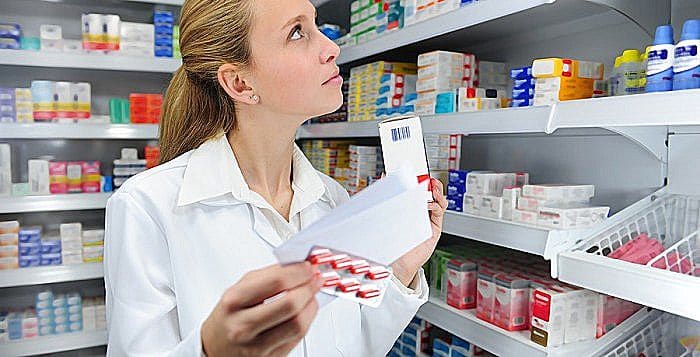L’industria del farmaco equivalente riconosce un grande merito alle farmacie, e cioè quello di aver ‘educato’ negli ultimi anni i cittadini ad un acquisto consapevole. Un esempio, questo, di vera farmacia dei servizi. “Come aziende produttrici degli equivalenti – ha spiegato Enrique Häusermann, President of Assogenerici, in column 'Federfarma's coffee' – non abbiamo mai fatto mistero del rapporto di fiducia che ci lega alle farmacie, perché grazie ad esse i farmaci equivalenti hanno avuto modo di farsi conoscere e apprezzare da parte dei pazienti.
For example, the pharmacist has a fundamental role in terms of therapeutic adherence, not only because the pharmacy is present throughout the country but also, and above all, due to the particular relationship of trust that the professional establishes day after day with the patients" . Hand in hand with the discussion on generics, goes that of biosimilar drugs and their possible sale in pharmacies.
“Non vedo perché si debba aprioristicamente vietare che determinate categorie di farmaci siano distribuite anche in farmacia – precisa ancora il Presidente di Assogenerici – E’ difficile prevedere se in futuro vi sarà un numero più ampio di farmaci biosimilari nelle farmacie, certamente dipenderà molto dalla tipologia di ambiente di prescrizione e somministrazione”.
But it is on the recent pre-agreement for autonomy signed by the Gentiloni government with Veneto, Emilia Romagna and Lombardy, and which will be completed in the next legislature, that Häusermann makes further clarifications. Specifically, with regard to the chapter which refers to the Regions, subject to the consent of Aifa, the right to adopt decisions based on the therapeutic equivalence between medicines with different active ingredients.
“L’equivalenza terapeutica tra principi attivi – spiega – è una materia estremamente delicata, poiché rimane essenziale, a nostro avviso, che siano i criteri scientifici a guidare le scelte in questo campo e non quelli economici. Ci sono aree terapeutiche dove le semplificazioni in materie di equivalenza terapeutica rischiano di sottrarre strumenti di cura ai sanitari e quindi ai pazienti. Noi riteniamo che la centralità dell’Agenzia del Farmaco in questo campo vada in tutti i modi salvaguardata. Non possiamo immaginare che queste valutazioni siano rimesse alle singole regioni”.
Related news: Assogenerics. "Pure" generics absorb 21.5% in units and 12.4% in pharmacy channel values
Note: Pharmacy margins, on medicines that can be paid for by the NHS, sono fissati (legge n. 662/96, modificata dalla legge n. 122/2010) nella misura del 30,35% lordi (la quota di spettanza teorica è ridotta dallo sconto articolato per fasce di prezzo che le farmacie stesse sono tenute a concedere obbligatoriamente al SSN, il margine delle farmacie è regressivo, diminuisce cioè percentualmente all’aumentare del prezzo del farmaco).
Sui farmaci equivalenti una quota pari all’8% del margine dell’industria è ridistribuita tra grossisti e farmacia secondo le regole di mercato.
With effect from 1 January 2005, the discount due by pharmacies to the NHS no longer applies to "specialties or generics that have a price corresponding to the reimbursement price" or reference price (Law No. 326 of 24 November 2003). The change aspired to create greater incentives for the marketing of cheaper equivalent products among off-patents.
E’ accaduto però che i maggiori ricavi ottenibili dalla farmacia grazie alla rimozione dello sconto obbligatorio dovuto al Ssn si sono dimostrati inferiori ai maggiori ricavi ottenibili tramite gli extra sconti riconosciuti dal produttore, e in alcuni casi anche dal grossista, alla farmacia su prodotti equivalenti e più costosi
In the price range in which the sales of level "A" products are concentrated, there remained the convenience of marketing the most expensive off-patent product (presumably an off-patent originator or one of its old licensees), due to the fact that in this case more total resources are available for their division between the manufacturer, the wholesaler and the pharmacy.
However, the practice of some manufacturers of negotiating the recognition from pharmacies of wider revenue margins (extra discounts) than those established by law, as an incentive tool for the marketing of their "A" range products, has been prohibited by law.
A negotiation therefore in fact contrary to the law and through which the producer, for the same consumer price, renounces shares of his own revenue margin in favor of the retail distributor. A similar practice is also established in the relationship between the wholesaler and the pharmacy.
In addition to taking the form of a contra legem, the practice of extra discounts lends itself to amplifying the well-known distorting effect that revenue margins as a percentage of the price generate on the incentives of distribution (especially pharmacies) to channel the more expensive products to consumption, both terms of price per unit of product and in terms of packaging.
The margin provision does not affect i class C medicinespaid for entirely by the citizen. The only regulatory provision applicable to these medicinal products must be found in article 13 of the Royal Decree of 3.3.1927. which provided for the pharmacist's right to a margin of no less than 25% of the retail price.
Basically, the higher revenue margin of the generic is an incentive to sell it.
